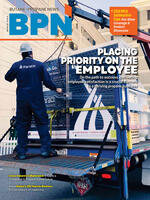
The United States has set ambitious climate goals to achieve a more sustainable future for its citizens. To reach the 2030 emissions reduction target of 50% to 52% below 2005 levels, as set by President Biden, communities across the country need solutions that can deliver reductions while meeting their different energy needs. This diversity of energy demands in the U.S. also means that what delivers low-cost decarbonization in one location may not work in another.
At present, cleaner energy sources like propane play an important role in reducing emissions from high-carbon oil or coal usage. While these savings are a huge step in the right direction, more sustainable solutions are required in the future to help the U.S. meet its emissions reduction goals. Renewable and recycled carbon dimethyl ether (DME) is one popular solution.
What Is DME?
DME is a liquid gas that has been used in the industrial and aerosol sector for decades. In fact, if you spray some deodorant or hair spray today, there is a good chance there is DME in it. So, you may ask: Why is DME so interesting for the propane industry?
Renewable and recycled carbon DME is chemically similar to propane and can be blended with propane up to 12% in existing off-grid heating, cooking and industrial applications, with no modifications needed to equipment or appliances. Larger industrial appliances and equipment can be modified in situ to run on 100% DME.
Renewable and recycled carbon DME can be made via on-purpose production, converting sustainable feedstocks — such as waste or biomass — into a helpful molecule. There are plans across the world to produce sustainable DME in large volumes, with demonstrator facilities already operational and plans for commercial production across Europe and the U.S.
In this way, renewable and recycled carbon DME can help cut emissions by up to 85% for off-grid communities compared to oil or coal. These greenhouse gas savings can reach over 100% if carbon capture is used in the production process. Negative emissions — when over 100% emissions savings are achieved — means more CO2 is taken out than is being put into the atmosphere.
Our Global Waste Challenge
Today, just 7.2% of used materials are cycled back into our economies after use. Globally, 2.01 billion tonnes of municipal solid waste is generated annually, with at least 33% of that needing to be safely managed in consideration of the environment. Global waste is expected to grow to 3.4 billion tonnes by 2050, more than double population growth over the same period. The total municipal solid waste generation in the U.S. is 292.4 million tons, with 146.1 million tons of that going to landfills.
Circular economies are integral to solving both the challenges of waste and de-fossilization; in fact, they can help each other. The circular economy concept revolves around minimizing waste, preserving resources and reducing environmental impact. It entails adopting a closed-loop system where products, materials and resources are reused, recycled or repurposed rather than discarded after a single use. An example of products produced in this way includes converting non-recyclable waste into sustainable fuels like renewable and recycled DME.
Going Full Circle: Waste-to-DME
 At Dimeta, we’re developing waste-to-DME production plants across the globe, producing DME using circular economy principles and encouraging collaboration across the value chain. Dimeta works with waste management companies to collect municipal waste, with technology leaders to process the waste and refine it into fuel, and with fuel distributors and appliance manufacturers to reach millions of off-grid consumers.
At Dimeta, we’re developing waste-to-DME production plants across the globe, producing DME using circular economy principles and encouraging collaboration across the value chain. Dimeta works with waste management companies to collect municipal waste, with technology leaders to process the waste and refine it into fuel, and with fuel distributors and appliance manufacturers to reach millions of off-grid consumers.
Through the production processes currently available, DME can be produced from biogenic and non-biogenic waste streams to help cut emissions and reduce local pollution associated with landfills. The waste-to-DME pipeline uses municipal waste as a feedstock, creating a low-carbon fuel that can power hard-to-electrify homes, businesses and industries off the gas grid.
Producing sustainable alternative fuels, such as DME, through circular economy principles helps lower emissions, minimize waste in landfills or inefficient incineration, and promote resource efficiency. It can also reduce the environmental and polluting impact that landfills can have on local communities. Poor waste management significantly impacts air quality, affecting local communities. Almost the entire global population (99%) still breathes air in their local environment that exceeds the World Health Organization’s air quality limits and which harms health.
In addition to the environmental benefits, a significant amount of research showcases the opportunity for job creation through the circular economy, as high as a net total of 7 or 8 million new jobs by 2030. As we transition to a circular economy, however, it is important that in addition to job creation, we’re also considering skills, addressing the issues of low-paying jobs and working conditions. Creating greener, more circular jobs can be good for the workforce and the environment.
Putting a Circular Economy Into Action
A resilient, circular economy will identify the best and most effective ways to use waste for the environment, jobs and economy. This will require governments, industries and the most critical aspect — people — to put a truly circular economy into action. By working in collaboration with the whole value chain, the propane industry can achieve the benefits of the circular economy as we transition toward a greener future.


